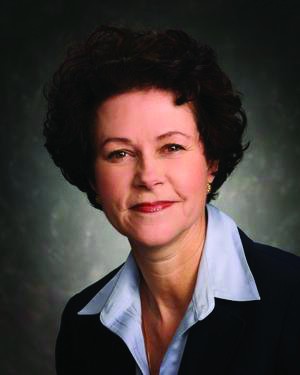Allendale Township to change state districts in 2013

Courtesy / Holland Sentinal Representative Amanda Price
Sep 26, 2012
With the population on the rise in Allendale, the growth is getting ready to affect more than just the overpopulated living space on the local campus. Beginning in 2013, Allendale Charter Township, home to the main Grand Valley State University campus, will shift from the 89th into the 88th district of the Michigan House of Representatives.
The State-mandated action results from and accommodates the population growth within Ottawa County and Allendale Township. Allendale is currently represented by Rep. Amanda Price (R-Park Township), but when the township moves to the 88th District in January, it will then be represented by Republican candidate Roger Victory, who won his primary by 88 votes and is unopposed for the general election in November.
“The Democrats did not field a candidate in the 88th (district),” said Matt McLogan, GVSU vice president of university relations. “The 88th may be the state’s most heavily Republican district.”
Being within a Republican-represented district isn’t new for GVSU. The current representative Price is also a Republican, and she has a good working relationship with GVSU, which will likely continue after the district change.
“Her new district extends to Grand Haven, where one of our research vessels, the DJ Angus, docks,” McLogan said, adding that a continued relationship between Price and GVSU is definitely expected even with the district switch.
The shift may mean a new representative for Allendale and GVSU, but few other things are likely to change in 2013. “The change in the districts isn’t likely to have much effect on Allendale or GVSU,” said Roger Moiles of the GVSU political science department.
Phil Cornish, also of the political science department, agreed that little impact is expected to come from the district change, but identified other topics that may become an issue for the GVSU, no matter what district it’s in.
“State funding is going to be tight for the foreseeable future,” Cornish said. “No matter who is elected to the Michigan House of Representatives.”
The district change is not unexpected, as the State of Michigan re-examines districts every 10 years and reassigns borders based on population shifts, McLogan said.
Districts in Michigan are divided so that each representative serves roughly the same amount of people. Areas with denser populations are split into smaller districts to ensure that each representative does not act on behalf of too many constituents.
District changes are common, and seats can be moved regularly according to population influx. In the last redistricting, because of its decrease in population, Detroit lost a seat in the House, while Ottawa County gained one, which McLogan explained is not that abnormal.
“Some districts get bigger, some get smaller, and some disappear altogether,” McLogan said.
For more information about the district changes, visit www.house.mi.gov/home_redistricting.asp.






















